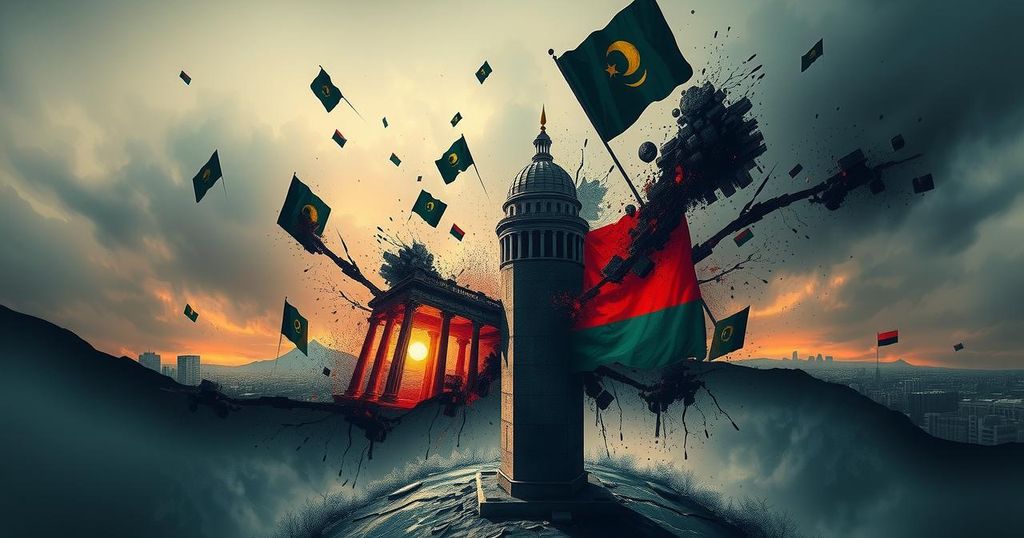The Sudanese military is planning to establish a new technocratic government as it regains control of Khartoum from the RSF. General Burhan has ruled out negotiations with the RSF and insists on a new constitution before a transitional government. The ongoing conflict has caused a humanitarian crisis, with both sides accused of atrocities.
The Sudanese military is seeking diplomatic endorsement for a new government aimed at stabilizing the country as it regains control of the capital, Khartoum, from the rival Rapid Support Forces (RSF). Army leader General Abdel Fattah al-Burhan announced his intentions to establish a “technocratic” wartime government, explicitly stating that negotiations with the RSF would not occur during this phase of the conflict, which has persisted for nearly two years.
General Burhan emphasized the necessity of drafting a new constitution before a transitional government can be formed, reiterating the government’s objective to liberate Sudan from what he termed as rebel forces. He described the prospective administration as a caretaker meant to fulfill specific military aims amidst ongoing violence that has displaced millions and caused severe famine.
The conflict, ignited in April 2023, arose following a fallout between General Burhan and the RSF commander, General Mohamed Hamdan Dagalo. The fighting has resulted in tens of thousands of fatalities and has been labeled one of the most pressing humanitarian crises worldwide, with both factions accused of egregious human rights violations, which they deny.
Recently, the Sudanese army has reportedly made considerable territorial gains against the RSF, utilizing enhanced air power and support from allied militias. Despite these advances, the RSF continues to exert control over much of western Sudan, especially the conflict-ridden Darfur region, where efforts to consolidate power remain intense.
The military’s foreign ministry has called on international entities like the United Nations, African Union, and Arab League to support the proposed roadmap to peace and stability outlining national consensus and transitional governance.
The Sudanese civil conflict stems from a power struggle between the military and the RSF, which had previously collaborated. As tensions escalated, resulting in a violent breakdown since April 2023, the humanitarian situation has rapidly deteriorated, leading to widespread displacement and suffering. International organizations have classified the situation as one of the most severe crises, highlighting the urgent need for diplomatic intervention and reconstruction efforts.
In summary, the Sudanese military’s recent advances in Khartoum signify a potential shift in governance amidst a prolonged civil war. With plans to form a new technocratic government and exclude negotiations with the RSF, the military seeks to stabilize a nation beset by humanitarian crises and severe internal conflict. Continued international support will be crucial for peace efforts as the country grapples with its turbulent future.
Original Source: www.bbc.com






